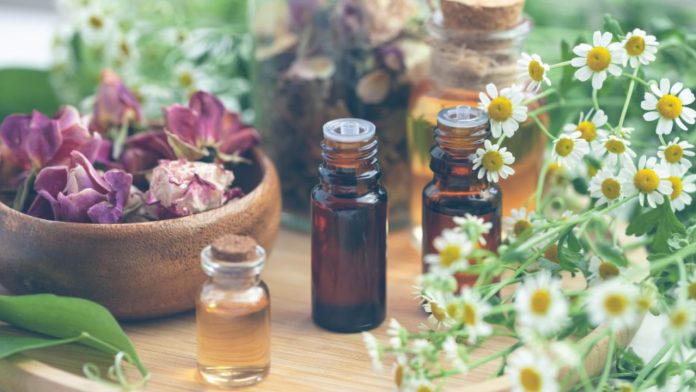Our sense of smell holds a profound connection to our memory and subconscious mind, creating lasting impressions associated with childhood scents that evoke nostalgia and comfort. Whether it’s the earthy fragrance after the first rain, the scent of books, incense, or the aroma of flowers, these scents can impact emotions and mood uniquely. Essential oils, integral to Ayurveda, play a role in balancing doshas. In our stress-filled lives dominated by never-ending to-do lists, fragrances can significantly contribute to physical and mental well-being. Aromatherapy, the use of aroma or scent to treat ailments, is gaining popularity for its diverse benefits, from enhancing sleep quality to providing pain relief.
Key benefits of aromatherapy include:
- Pain Relief: Aromatherapy, particularly through essential oils like lavender and peppermint, has analgesic properties that can alleviate discomfort. Whether applied through massage or diffused in the air, these oils induce relaxation and pain relief.
- Enhances Sleep Quality: Aromatherapy is closely associated with the improvement of sleep quality, a pivotal factor in the body’s recovery processes. Notably, essential oils such as chamomile and bergamot are celebrated for their tranquilizing effects, fostering an environment conducive to restful sleep. Recognizing the significance of quality sleep, aromatherapy emerges as a valuable aid in the recovery journey from illness.
- Promotes Mental Health and Wellness: Beyond its physical benefits, aromatherapy demonstrates positive effects on mental health. Citrus scents, for instance, have been linked to mood elevation and the reduction of stress and anxiety levels. Managing stress is crucial during the recovery phase, as excessive stress can impede the body’s healing mechanisms. Aromatherapy offers a natural and holistic approach to addressing both the physical and mental aspects of the recovery process.
- Therapeutic Advantages: Aromatherapy can effectively complement traditional medical treatments, though it is not a substitute for professional medical care. Integrating aromatherapy into a comprehensive wellness plan enhances the overall healing experience. Patients recovering from surgery or managing chronic conditions may find relief through aromatherapy’s supportive role.
- Tailored to Individual Preferences: It is imperative to recognize the variability in individual responses to aromatherapy. What proves effective for one person may not yield the same results for another. Therefore, it is advisable to explore a variety of essential oils and application methods to identify what aligns best with one’s body and personal preferences.

 हिंदी
हिंदी






